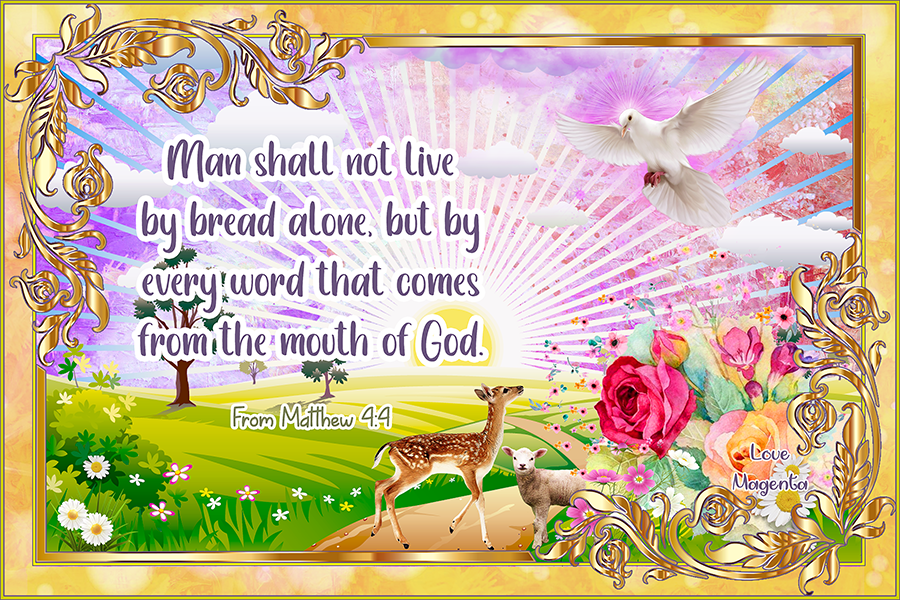Back to the Johanine Comma? This verse does not demonstrate a trinity doctrine at all, and is found in margins. Margins back then, meant something was forgotten.
The Vaticanus manuscript containing 1 John 5:7 demonstrates that a significant textual variant was known for 1 John 5:7 in the 4th century. In 1995 Philip B. Payne discovered "umlauts" (double dots) in the margins of various places in Codex Vaticanus. He and many scholars agree that these umlauts indicate lines where a textual variant was known to the scribe. You can read his work, The Originality of Text-Critical Symbols in Codex Vaticanus here:
Vaticanus Text Critical Symbols
Interestingly, an umlaut appears next to the phrase "τρεις εισιν οι μαρτυρουντες" in Vaticanus. Payne briefly discusses and seemingly dismisses the significance of the umlaut in 1 John 5:7 (p. 112, footnote 34), but without a doubt, the umlaut is there. The graphic displayed is a scanned image of 1 John 5:6-8 in Vaticanus and the red arrow points to the double dots.
The screen capture of the transcription of the picture below is from the official digitized Nestle-Aland on the University of Munster Institute website.
There is only one known variant in 1 John 5:7 and that is the Johannine Comma which is now contained in the Textus Receptus. This means the Comma existed before the Codex Vaticanus was written.
Source:
https://textusreceptusbibles.com/Editorial/Umlauts
Also, Textual Critics ignore the witnesses of the early church fathers.
Modern Scholars actually have nothing much to say on Fulgentius.
But this video goes into a deep explanation of his official debate involving the Comma.
So of course they are hiding things like this from you.
They also ignore that a top Greek grammarian (who is not KJB Only) who lives in Greece and his native tongue is Greek says there is a grammar error in the text if 1 John 5:7 is not there. See this video here:
Keep in mind that many of the Textual Critical scholars do not even know how to order a pizza in Greek.
I think there jobs are at stake if they admit they are wrong.
Plus, I can show you in English in context of why 1 John 5:7 is supposed to be in the text.
1 John 5:7 tells us the witness of God in Heaven, which is the Father, the Word, and the Holy Ghost, and these three are one.
1 John 5:8 gives us the witness of man in that man is made up of water, blood, and spirit. As we can note, both blood and water poured out of Jesus’ side at the cross when the spear pierced Him.
1 John 5:9 says the witness of God is greater. So without the witness of God in 1 John 5:7, it does not contextually make any sense.
In addition, for hundreds of years, Christians had this verse and they obviously used it as God’s Word in defense against those who denied the Trinity. So these Christians were deceived for hundreds of years and helping others with 1 John 5:7 means nothing? Okay.
Furthermore, the Vaticanus and Sinaiticus text type is Alexandrian. So if the manuscripts can be traced to Alexandria Egypt, that is not good. If you were to Google the origins of Arianism, you would see that a large fountainhead of that movement was from Arius who resided in the Alexandria Egypt area. Coincidence? If you believe in such things.
I mean, if I washed up on a deserted island, and I knew nothing of Christianity, and all I had was Modern Bible, the chances of my knowing about the Trinity would be harder to figure out unless I had a King James Bible instead. All DIRECT references of the Trinity are removed in Modern Bibles. Not only is 1 John 5:7 removed, but the word “Godhead“ which appears three times in the KJB (Meaning Trinity) is changed to “divinity.“ There are also Latin witnesses (manuscripts) in the earlier centuries that Modern Scholars ignore, as well. But Latin was one of the three languages that was written on the sign that was above Jesus.
To make matters worse for the Textual Critic, they actually try and deceive us by moving the part of 1 John 5:8 that says the words, “For there are three that testify:” to replace the empty space in 1 John 5:7 to fool the new reader into thinking there is no missing verse there that is important. To me this should raise alarm bells for you. But I am sure it will not for many in the Textual Critic camp. They will just say, “Nothing to see here.” “Move on.” If this was some minor fact in the Bible that does not change doctrine, I could see, but this is a major doctrine of who God is.



